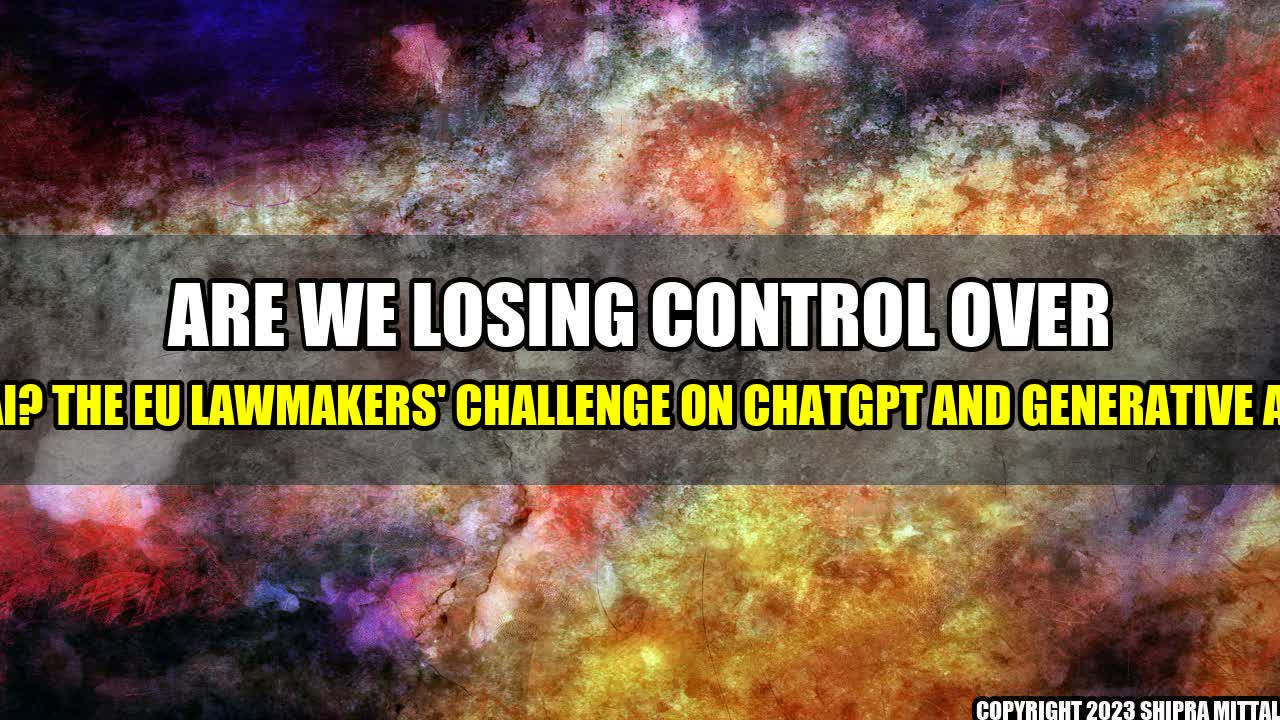Imagine a world where AI machines can create realistic-looking images of people who do not exist, generate fake news, or mimic human conversations down to the smallest detail. Sounds like a dystopian future, right? Unfortunately, this is already the reality we are facing, and it is high time to address these issues on a global scale.
Recently, the EU lawmakers announced their plans to regulate ChatGPT and Generative AI, two types of AI systems that are particularly problematic because they are capable of producing realistic and contextually relevant responses to text or image inputs, even without prior training. These new regulations aim to prevent misuse and abuse of these powerful tools, and set ethical guidelines for their development and deployment.
The importance of this issue cannot be overstated. Just last year, we witnessed how GPT-3, the latest version of ChatGPT developed by OpenAI, sparked controversies when it generated articles that were indistinguishable from those written by humans, raising concerns about the potential misuse of such technology.
Moreover, there are already real-life examples of how Generative AI can be used for harmful purposes, such as creating fake videos that are hard to detect as fake, or impersonating individuals to trick others into divulging sensitive information. One such example is the deepfake video of former President Obama that went viral in 2018, which was created using Generative AI.
This is why it is crucial for companies that develop and deploy AI, such as OpenAI and Google, to take a proactive approach to AI ethics and ensure that their technologies are not used for malicious purposes. Companies like OpenAI have already taken steps to address these concerns by limiting access to their APIs, introducing ethical principles, and consulting with experts in the field.
However, as we have seen, this is not enough, and the role of governments in regulating these technologies is paramount. The EU lawmakers' challenge to rein in ChatGPT and Generative AI is just the first step towards creating a safer and more ethical AI landscape.

Akash Mittal Tech Article
Share on Twitter Share on LinkedIn